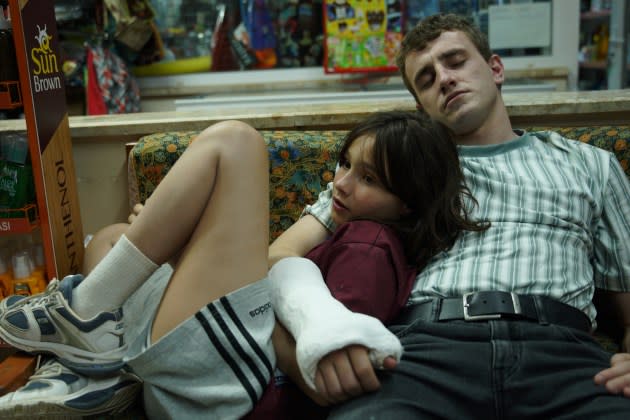BBC Film & Film4 Bosses Voice Concern For Future Of UK Indie Film Sector: “We’re At Risk Of Losing A Huge Number Of Talented People From The Industry”

The heads of UK financiers Film4 and BBC Film voiced concern this morning for the future of the indigenous UK film sector, which has seen its market share dwindle in the shadow of big U.S. inward investment and budgets stall at the big UK funding bodies.
Ollie Madden, Director, Film4, and Eva Yates, Director, BBC Film, were interviewed by UK politicians as part of the ongoing British Film & High-End TV Inquiry, which is gathering intelligence from key stakeholders in a bid to boost the sectors.
More from Deadline
Yates, whose publicly funded BBC Film has recently backed movies including Aftersun and Rye Lane, told the committee: “I hope we can get to a better place of resilience. We have an incredibly successful inward investment sector, which is vital and valuable. It’s generating a lot of content. At the other end of the industry, there isn’t a lot of funding and a lot of very talented people are leaving the industry. How do we keep British talent here, telling British stories here? There is a break in the pipeline. Looking after that indigenous part of the industry is the biggest thing we hope for in these conversations.”
Madden, whose Film4 is riding high off the back of awards hits Poor Things, The Zone Of Interest and All Of Us Strangers, added: “The huge growth in inward investment, which has been great for the UK in many ways, has had some side effects. One of those is an increase in production costs and a difficulty in getting cinema screens for independent film. When independent films can be made, they can reach big global audiences so we’re really focused on moving barriers to those films being made.”
The UK independent film sector has for years seen falls in production spend and box office market share. The UK has become a lucrative service sector for the U.S. studios, which has been a boon for crew and overall spending, but the grassroots sector has faced significant challenges and there is growing concern over talent drain and a lack of sustainability.
Madden said there was a “huge demand for British films but there aren’t enough being made. We need to ensure there aren’t gaps in the supply.”
Both acknowledged a pressure on production budgets and debut films. BBC Film and Film4 have seen their budgets remain the same for a decade while costs have risen steeply. Meanwhile, the BFI has seen its own budgets slashed in that time.
Yates laid out that BBC Film’s budget had stayed at £11M (including overhead) for the best part of a decade. Film4’s budget has also been static at around £25M, Madden revealed.
“The cost of making first time features have shot up…we make four a year but we’d like to make more” said Madden about Film4, which is a public service broadcaster funded entirely from commercial revenue.
Yates noted that debuts today tend to cost around £3M whereas that number was only £1.5M a few years ago.
Both executives agreed that increased tax credit support for independent UK film — something that has been proposed to government by industry organizations such as PACT and the BFI — would be a big help.
Yates commented: “A tax credit could have a transformative effect: we’re at a point where we’re at risk of losing a huge number of really talented people from the industry. There’s an immediacy of that as a possible solution but there’s also a chance to bring back some confidence to an industry that has been battered by Covid, the U.S. strikes, and changes to the structure of the market…That [an enhanced tax credit] would be the most immediate high-impact thing that could be done.”
Both panelists said they would welcome streamers being incentivized to support local and regional films.
The committee of politicians said at the end of the session that it was starting to get a clearer picture of the problem with many of the same concerns being voiced across multiple sessions.
Best of Deadline
Berlin Film Festival 2024 Red Carpet: 'Spaceman' Premiere On Day 6
2024 Premiere Dates For New & Returning Series On Broadcast, Cable & Streaming
Hollywood & Media Deaths In 2024: Photo Gallery & Obituaries
Sign up for Deadline's Newsletter. For the latest news, follow us on Facebook, Twitter, and Instagram.

